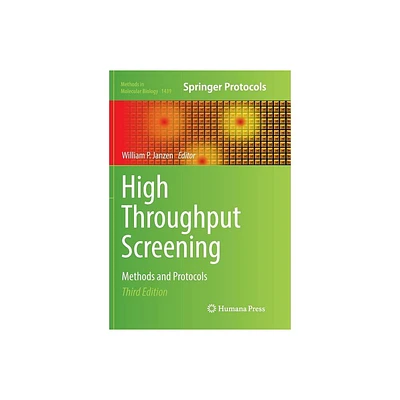Home
Advancing Development of Synthetic Gene Regulators: With the Power of High-Throughput Sequencing in Chemical Biology
Loading Inventory...
Barnes and Noble
Advancing Development of Synthetic Gene Regulators: With the Power of High-Throughput Sequencing in Chemical Biology
Current price: $109.99


Barnes and Noble
Advancing Development of Synthetic Gene Regulators: With the Power of High-Throughput Sequencing in Chemical Biology
Current price: $109.99
Loading Inventory...
Size: OS
*Product Information may vary - to confirm product availability, pricing, and additional information please contact Barnes and Noble
This book focuses on an “outside the box” notion by utilizing the powerful applications of next-generation sequencing (NGS) technologies in the interface of chemistry and biology. In personalized medicine, developing small molecules targeting a specific genomic sequence is an attractive goal. N-methylpyrrole (P)–N-methylimidazole (I) polyamides (PIPs) are a class of small molecule that can bind to the DNA minor groove. First, a cost-effective NGS (ion torrent platform)-based Bind-n-Seq was developed to identify the binding specificity of PIP conjugates in a randomized DNA library. Their biological influences rely primarily on selective DNA binding affinity, so it is important to analyze their genome-wide binding preferences. However, it is demanding to enrich specifically the small-molecule-bound DNA without chemical cross-linking or covalent binding in chromatinized genomes. Herein is described a method that was developed using high-throughput sequencing to map the differential binding sites and relative enriched regions of non-cross-linked SAHA-PIPs throughout the complex human genome. SAHA-PIPs binding motifs were identified and the genome-level mapping of SAHA-PIPs-enriched regions provided evidence for the differential activation of the gene network. A method using high-throughput sequencing to map the binding sites and relative enriched regions of alkylating PIP throughout the human genome was also developed. The genome-level mapping of alkylating the PIP-enriched region and the binding sites on the human genome identifies significant genomic targets of breast cancer. It is anticipated that this pioneering low-cost, high through-put investigation at the sequence-specific level will be helpful in understanding the binding specificity of various DNA-binding small molecules, which in turn will be beneficial for the development of small-molecule-based drugs targeting a genome-level sequence.












